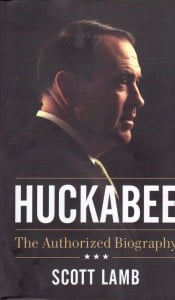 I am no one special. Just a common man with common thoughts. I’ve led a common life. There are no monuments dedicated to me and my name will soon be forgotten, but in one respect I’ve succeeded as gloriously as anyone who ever lived. I’ve loved another with all my heart and soul and for me that has always been enough.
I am no one special. Just a common man with common thoughts. I’ve led a common life. There are no monuments dedicated to me and my name will soon be forgotten, but in one respect I’ve succeeded as gloriously as anyone who ever lived. I’ve loved another with all my heart and soul and for me that has always been enough.
–Duke (James Garner), “The Notebook”
I’m a pretty tough cookie when it comes to the movies. I sit back and analyze the dialogue, deconstruct scenes and then imagine them differently, watch for historical inaccuracies or exaggeration, admire the costuming. I try to remember the actors’ names, and compare their acting in this film to their performance in previous films. With all of that going on in my head, I do not cry. Ever.
Except once.
My husband and I were visiting our son in Greenville, South Carolina. The menfolk had a project to complete—remodeling the bathroom, or painting the kitchen, something like that—and I rented the 1994 chick flick “The Notebook” from the local Blockbuster and settled in to watch the show. An hour and a half later, my husband popped back into the living room to find me, tears streaming down my cheeks, completely out of control.
Why, you ask, did this film invade this cranky heart in a way that “Return To Me” and “Sleepless in Seattle” could not?
Like a funhouse mirror, “The Notebook” stretched and skewed reality, exposing my future in a wiggly, wavy sort of way—forcing me to admit, perhaps for the first time, that those little lapses in memory that we laughingly call “senior moments” are precursors to a Big Forgetting, the beginning of the end.
Through the years—through raising children and watching them grow, through buying homes and cars and baby strollers—we’ve merged our fortunes, for better or worse. Together we’ve tested our wings, driving across the country in a Chevy Vega packed to the roofline with tent and frying pans and baked beans, and later flying across the Atlantic to explore the European countryside.
Now clomping along through our 35th year of marriage, my husband and I joke about the inevitable signs of aging: the aches and pains, the creaky hip, the misplaced eyeglasses, the forgotten name that’s just on the tip of the tongue. But someday—and that day will force itself upon us in a flash—there will be the inevitability of a sweet goodbye. If we’ve lived and loved for sixty years, it will not have been enough.
Watching Allie and Noah, I was forced to admit that the end of our story, however it comes, is going to be hard. Not just hard, but unimaginably devastating. Chances are we won’t die together—instead, one of us will falter first, and the other will try to hold on, but chemotherapy or surgery or defibrillation will prove insufficient. One will walk alone into eternity, leaving the other with a profound grief.
Actor Ryan Gosling, who played the role of the young Noah in the film, spoke recently on the Independent Film Channel about how “The Notebook” actually caused one couple to break their engagement. After watching the lake scene, in which Noah takes Allie for a ride in a rowboat amid a flock of swans and geese, the woman complained, “You wouldn’t build a house for me, would you?!” The clueless fiancé responded “Well, no—I don’t know how!” “But if you knew how?” “No, but it doesn’t mean I don’t love you.” She said, “Yes, it does!”—and sensing only a more ordinary kind of love, not Noah’s ardent, expansive love, she ended the engagement.
What that young woman didn’t understand, and what made the movie so implausable, is that the young can only imagine a love like that. Oh, youthful passion brings delights of its own—but it can’t hold a candle to the later love that’s been tempered in the fire of everyday life, of midnight feedings, of cars repaired and jealousies survived, of prayers together on our knees. I still can’t bear the thought of losing that abundant, well-worn love.
Pope Paul VI wrote, “Someone should tell us, right at the start of our lives, that we are dying. Then we might live life to the limit, every minute of every day. Do it! I say. Whatever you want to do, do it now! There are only so many tomorrows!”















